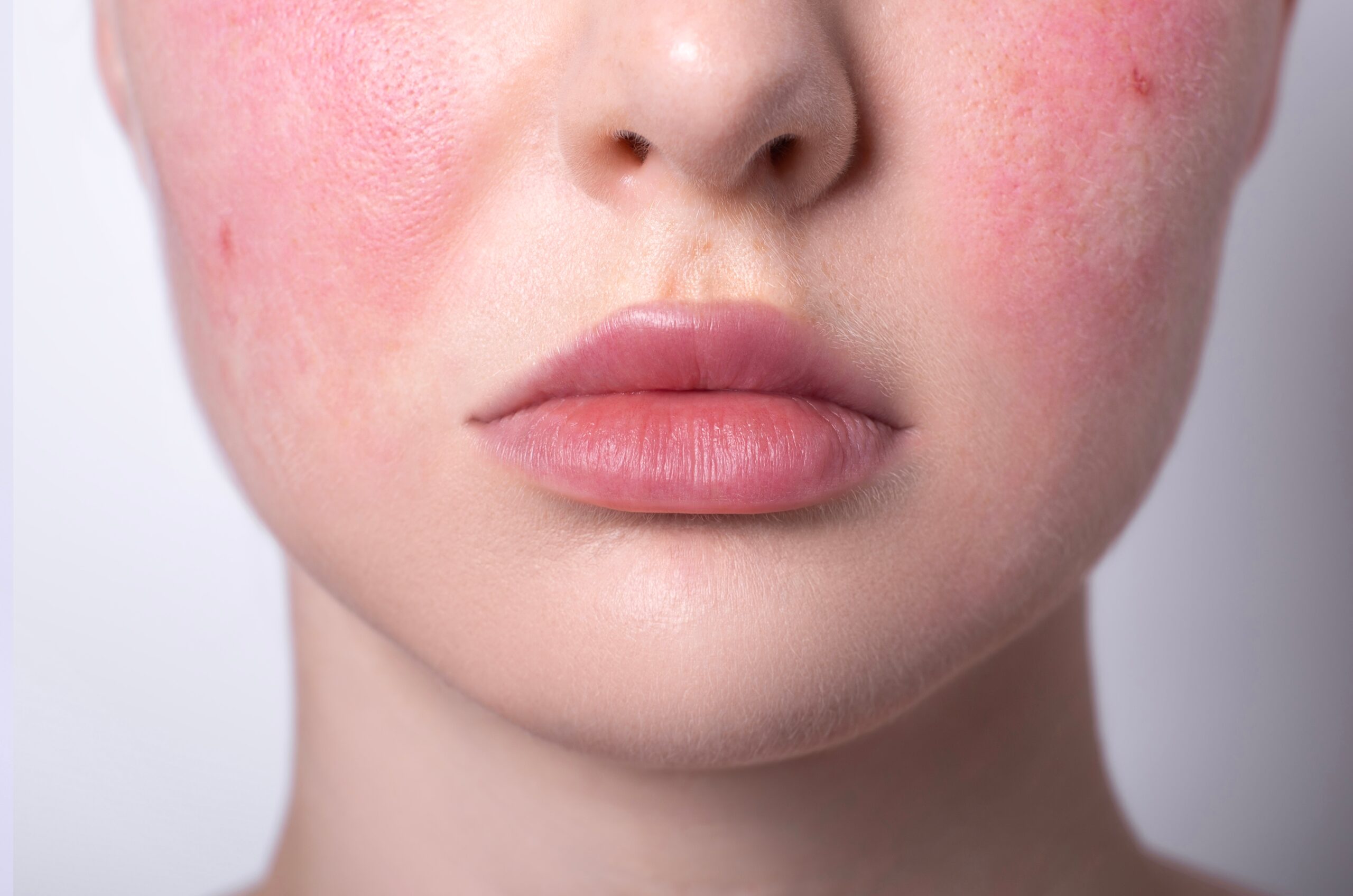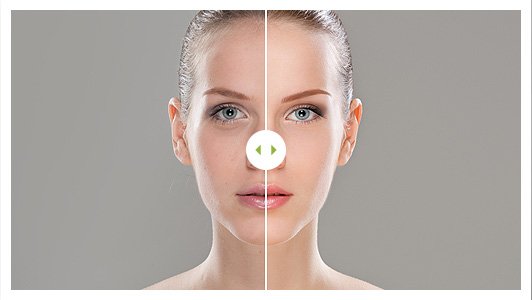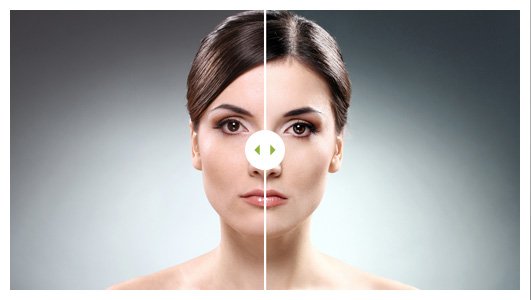6 Tips for Managing and Living with Rosacea
Do you have rosacea and experience flare-ups? Persistent irritation, redness, and other rosacea symptoms can cause considerable distress and frustration.
But with a combination of lifestyle changes and medication, you can find relief from the bothersome symptoms, limit flare-ups, and transform your skin. Keep reading to learn about 5 tips for managing and living with rosacea!
What Is Rosacea?
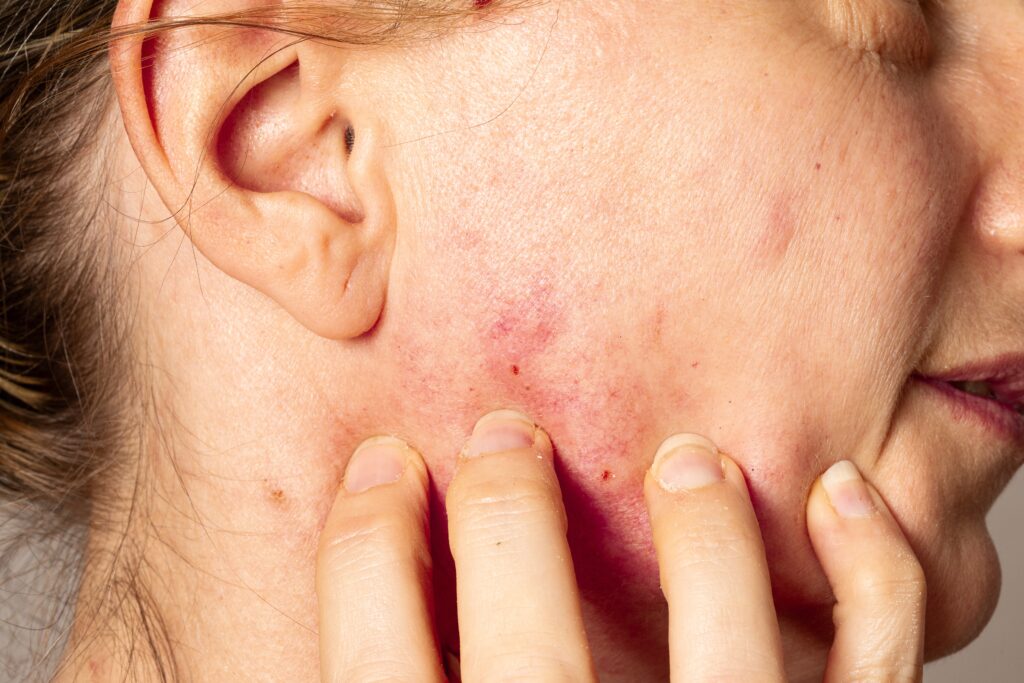
Rosacea is a chronic, inflammatory skin condition that causes redness, noticeable blood vessels, and acne-like breakouts in the form of small bumps on the face. If you have rosacea, you may experience redness or flushing on the cheeks, forehead, chin, or nose.
The symptoms of rosacea usually come and go, with certain factors, such as stress, spicy foods, and spending time in the sun, causing flare-ups.
Tips for Managing Rosacea
Although rosacea doesn’t have a cure, you can lessen the intensity and frequency of flare-ups with these tips from your dermatologist at Allura Skin:
1. Eat for Rosacea
Modifying your diet can strengthen your gut microbiome and decrease inflammation, improving rosacea symptoms. Here are some dietary guidelines to consider:
Anti-Inflammatory Foods
Include dark leafy greens, berries, peaches, pumpkin, bell pepper, carrots, and mangos in your diet to keep flare-ups at bay.
Healthy Fats
Incorporate eggs, olive oil, and peanut butter, which are known to keep rosacea symptoms in check.
Omega-3 Fatty Acids
Foods rich in omega-3 fatty acids can reduce inflammation and rosacea symptoms. Try lake trout, salmon, sardines, mackerel, flaxseeds, chia seeds, and walnuts.
Prebiotic and Probiotic Foods
Foods with prebiotics and probiotics can support gut function, soothing inflammation and controlling flare-ups. Prebiotic foods to eat more and include in your diet include pistachios, dried dates, green peas, asparagus, bananas, onions, and lentils.
Probiotic foods that can improve your gut function and potentially reduce inflammation due to rosacea include kimchi, kefir, and sauerkraut.
Foods to Avoid if You Have Rosacea
Certain foods may cause rosacea flare-ups. Steer clear of or limit your intake of tomatoes, spicy foods, chocolate, dairy, soy sauce, liver, sour cream, eggplant, citrus fruits, vinegar, spinach, and foods high in histamine, like processed meats and aged cheese.
Remember that foods that minimize rosacea symptoms for one person may trigger flare-ups for another and vice versa. Keeping a daily food journal can help you identify and avoid your triggers.
Stefan Lowenstein, a dermatologist at Golden State Dermatology in Albany and Berkeley adds:
“While individual triggers can vary, many patients find that alcohol, particularly red wine, can exacerbate rosacea symptoms. It’s also worth noting that hot beverages, regardless of their content, can trigger facial flushing in some individuals. I always recommend patients pay attention to how their skin reacts to different foods and drinks.”
If certain foods tend to trigger flare-ups, consider reducing your intake or eliminating them from your diet to feel better and manage your rosacea symptoms.
2. Shield Your Skin from the Sun
Sun exposure is one of the most significant triggers for rosacea. The sun’s UV rays can cause redness and make blood vessels more noticeable.
The best way to limit flare-ups and keep existing redness from worsening is by wearing sunscreen every day, whether sunny or overcast.
Sunscreen Application
If you have rosacea, you should apply it every 2 hours. You’ll have to reapply it more often if you’re swimming.
Choosing the Right Sunscreen
Not all sunscreens are the same. Avoid sunscreens with chemical absorbers as they may lead to skin irritation. They may also cause more aggressive rosacea symptoms.
Other ingredients like alcohol, fragrance, preservatives, and dyes can also lead to flare-ups that make your skin look and feel worse.
Recommended Sunscreen Types
Choose a non-chemical sunscreen with titanium oxide or zinc oxide of SPF 30 or higher that offers UVA and UVB protection. You can also consider broad-spectrum sunscreens specially designed for redness and rosacea-prone skin.
Additional Sun Protection
It’s a good idea to wear high-quality sunglasses and sun-protective clothing. Make sure that any sunglasses you’re wearing provide UVA and UVB protection from the sun’s rays, which should be indicated on a label on the side.
Also, consider wearing a wide-brimmed hat to bolster your protection from the sun.
3. Get Some Exercise
Exercise can cause good and bad things if you have rosacea. An intense workout can cause overheating and increase blood flow to your skin, triggering a rosacea flare-up.
However, working out frequently can decrease inflammation and promote better skin health.
To get the most out of exercise and avoid the potential for a rosacea flare-up:
- Opt for low-intensity workouts such as swimming, walking, bicycling, and yoga
- Work out in a cooler environment, such as early morning, late evening, or in a well-ventilated gym, to prevent overheating
- Complete short spurts of exercise, which are less likely to cause flushing compared to one long workout
- Drape a cold towel around your neck or spray your face with cool water when working out to keep cool
- Drink lots of water when exercising to cool your body down
4. Use Rosacea-Friendly Skincare Products
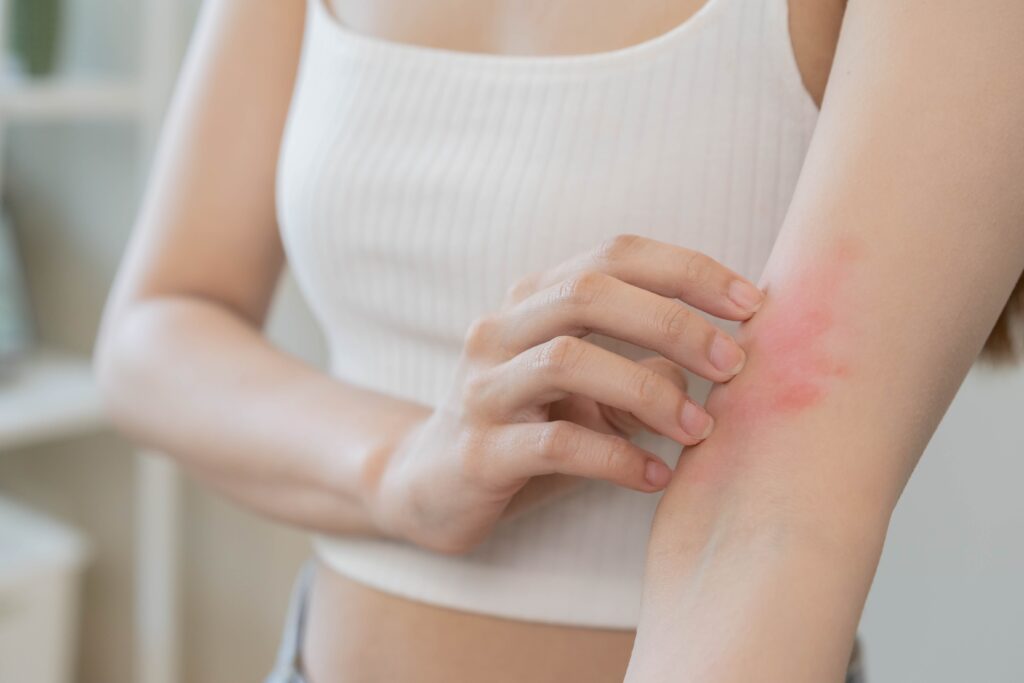
Using appropriate skincare products can soothe irritation and redness, reduce flare-ups, and achieve healthy, radiant skin. The market is saturated with products that claim to provide relief from rosacea.
However, not all products are suitable for your sensitive skin. If you have rosacea, avoid products containing fragrance, lactic acid, alcohol, and glycolic acid.
These can be extremely irritating and drying, worsening rosacea symptoms. Additionally, don’t purchase skincare products with pine, cedar, lime, lemon, peppermint, or menthol. They can all cause severe irritation.
Instead, invest in rosacea-friendly skincare products, including:
Cleansers
Gentle, soap-free cleansers won’t strip skin of its natural oils. Get cleansers with soothing ingredients, such as green tea, aloe vera, and chamomile.
Moisturizers
Look for a moisturizer labeled “hypoallergenic” and “non-comedogenic.”
Medicinal Creams
Topical creams with azelaic acid or metronidazole can aid in controlling redness. Your dermatologist at Allura Skin can recommend the most appropriate one for your skin type.
5. Incorporate a Skincare Routine
A good skincare routine can alleviate rosacea symptoms and lessen flare-ups. The following can help with rosacea-prone skin:
- Cleanse your face twice daily, in the morning and before bed
- Gently apply cleanser with your fingertips in circular motions
- Wash your face with lukewarm water. Gently pat it down with a cotton towel
- Before using any new skincare product, perform a patch test to ensure it doesn’t exacerbate rosacea symptoms. Dab a small amount close to where you have flare-ups and check for signs of irritation within 72 hours
- Moisturize consistently. Moisturizing locks in hydration and strengthens the skin barrier, keeping your skin more comfortable. Buy a moisturizer with ingredients like hyaluronic acid, ceramides, and glycerin
Kim Rufkahr, a registered nurse at The Menkes Clinic, a GSD Affiliate emphasizes:
“Consistency is key when it comes to managing rosacea through skincare. I advise my patients to stick to their routine for at least 6-8 weeks before expecting to see significant improvements. It’s also crucial to introduce new products one at a time, allowing your skin to adjust and helping you identify which products work best for your specific case of rosacea.”
6. Laser Treatments to Help Manage Rosacea
A lesser-known option, is the use of lasers to help manage the cosmetic symptoms of rosacea. IPL(Intense Pulsed Light) and Excel V laser treatments can significantly reduce persistent redness, unwanted flushing/blushing and broken blood vessels that are common with rosacea.
Don’t Let Rosacea Control Your Life
Allura Skin provides a personalized approach to treating rosacea. Our trusted dermatologists will tailor a treatment plan that aligns with your unique needs so you can feel like yourself again.
Are you struggling with rosacea? Book your appointment today at Allura Skin. It’s time to feel comfortable in your skin again.
Back to Blog Page
